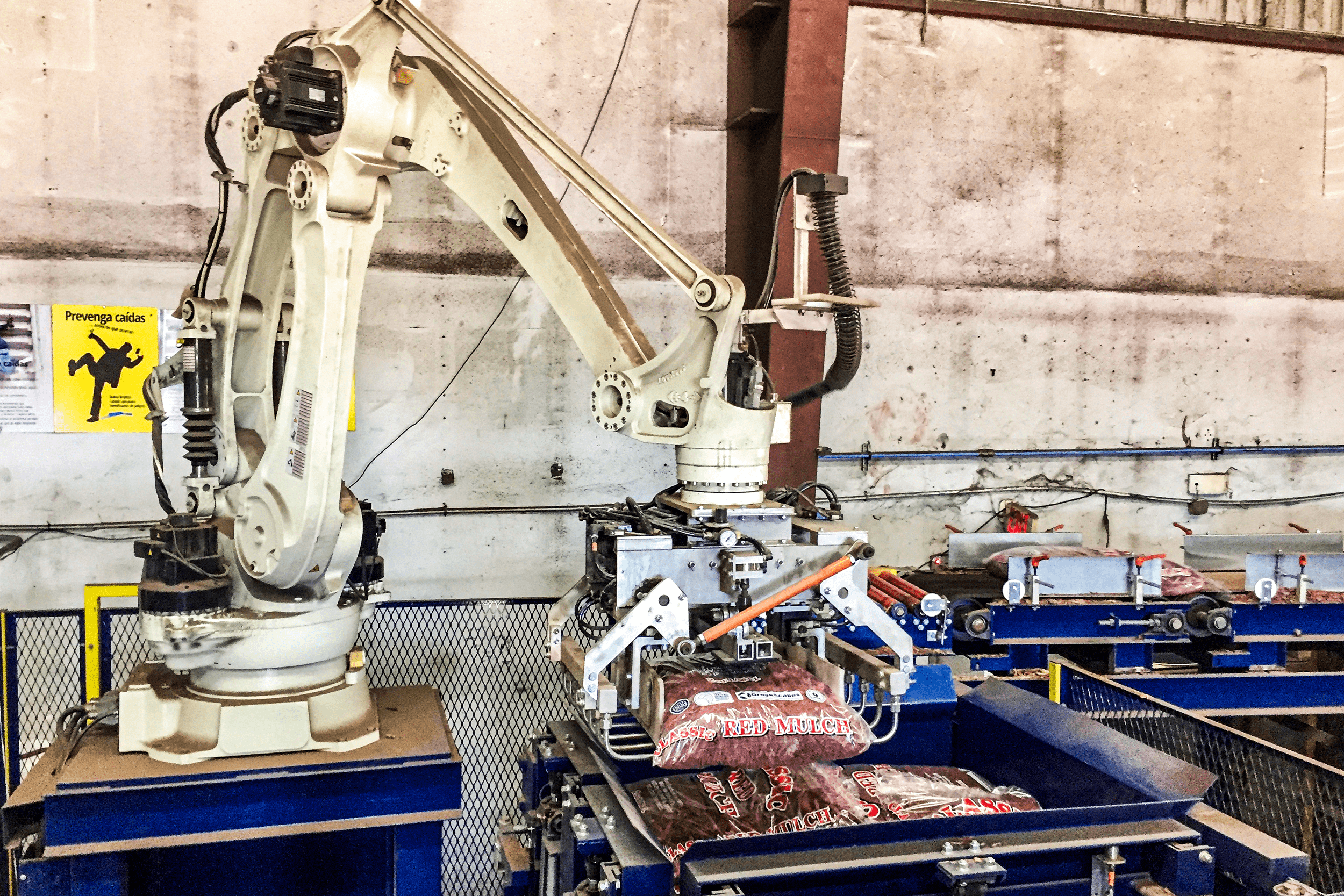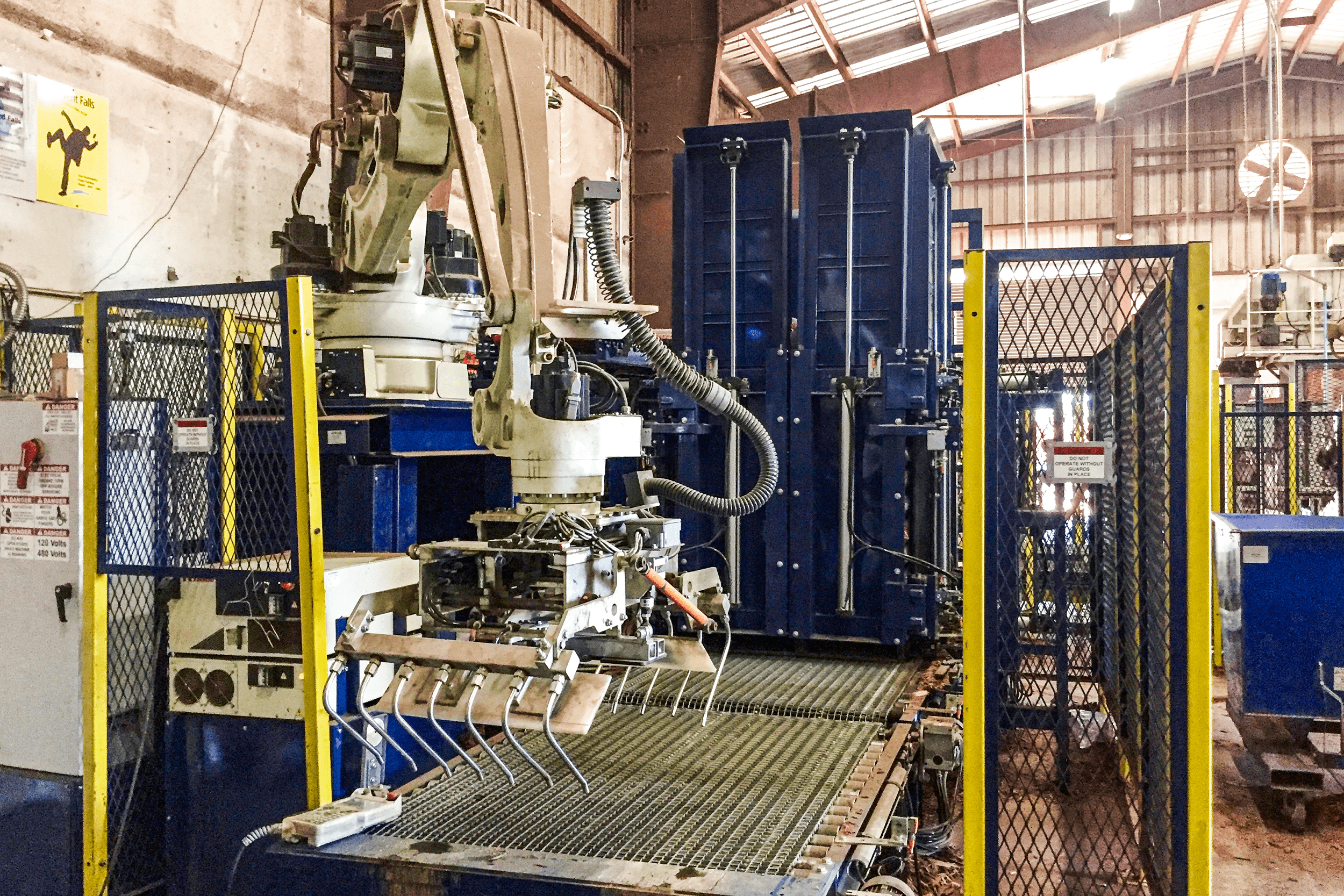Florida Wood Recycling Case Study
Creating A New Solution for Bag Palletizing in the Landscaping industry
RESULTS
• System runs up to 18 hours/day, palletizing at a rate of up to 22 bags/minute and realized output of 18 bags/minute.
• Employees redeployed to other roles in facility.
• Automated Palletizing Stack Box eliminates overhang and allows for extended pallet stacking.
• Custom Automated Palletizing Stack Box, designed by NOVA Automation
In the landscaping industry, palletizing bags of soil and mulch has always been a relatively difficult process to automate. Dropping lightweight, oversize plastic bags onto a pallet securely and without overhang has proven to be a challenge for robots and human workers to do with precision – especially after performing hours of manual labor.
Stacking oversize plastic bags of landscaping material is not an ergonomically friendly task for human workers. Fatigue naturally sets in after doing manual labor over the course of an eight-hour shift, and doing this type of repetitive motion for extended periods poses a clear risk for injury. The strenuous nature of this task led to low employee retention, which resulted in inconsistent palletizing rates and idle machines.
To solve this problem, Denver-based integrator NOVA Automation designed an automated system that allows manufacturers of landscaping materials to avoid pallet overhangs and redeploy workers to more human-friendly jobs while providing a consistent and reliable palletizing process amidst a labor shortage.
The power, reliability, and industry-leading speed of Kawasaki’s CP300L robot made it the perfect candidate for FWR’s application. CP series robots drive the flexible automation of end-of-line and distribution processes in a wide range of industries, and support the highest production line efficiencies. With the lightest maximum payload capacity, the CP300L model's throughput is the highest of the CP series palletizing robots. Repeated positive experiences with Kawasaki also played a role in NOVA’s choice.
Prior to automation, the bag stacking process required two workers to do strenuous, repetitive motions for an entire shift. Now, these workers are hard at work in another area of FWR’s facility, where their skills are better utilized. The robot is reliable and consistent, and FWR no longer has to pay overtime or halt production if an employee doesn’t come to work. They also avoid having to pay workers in the case of a malfunction.



